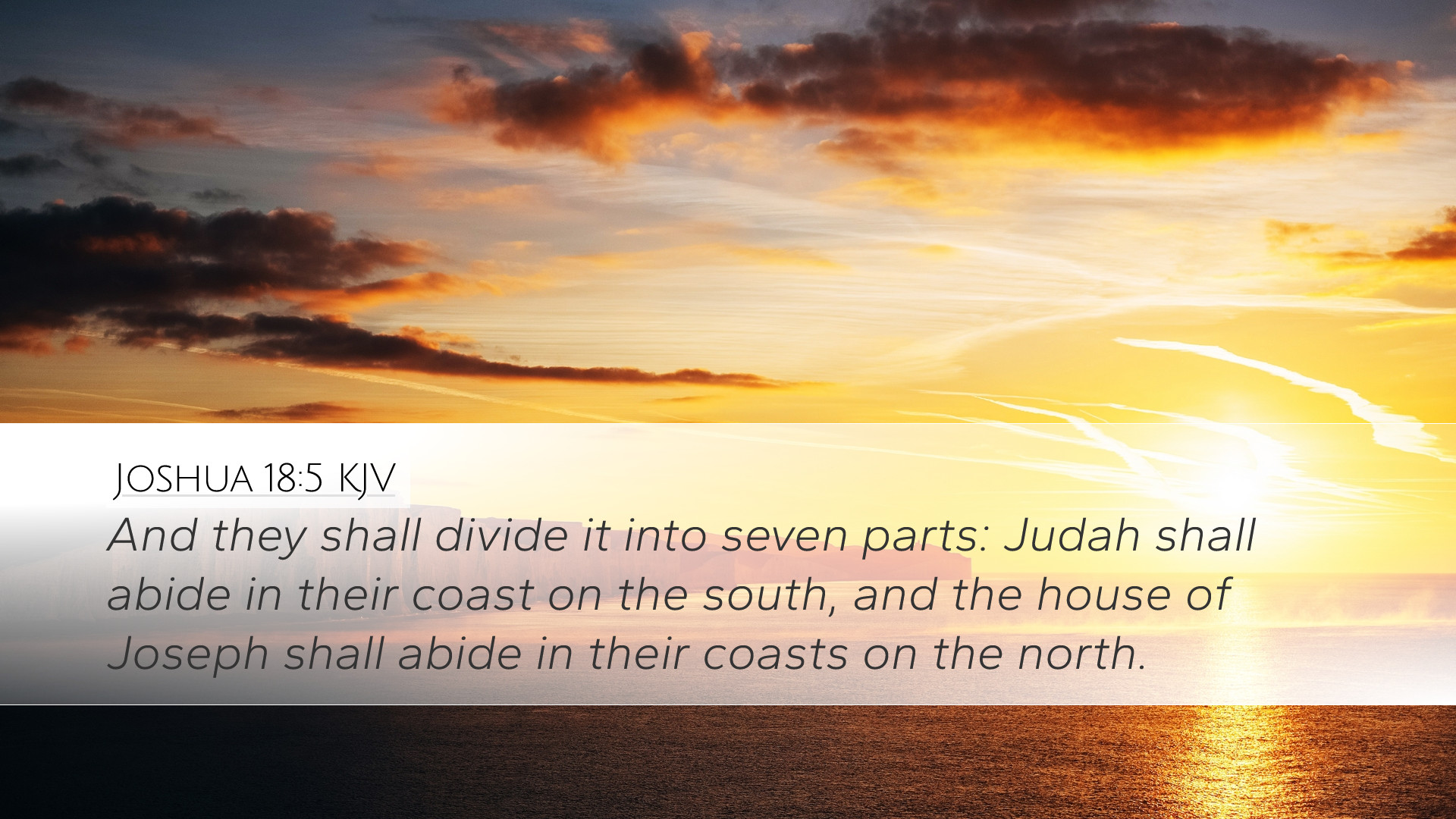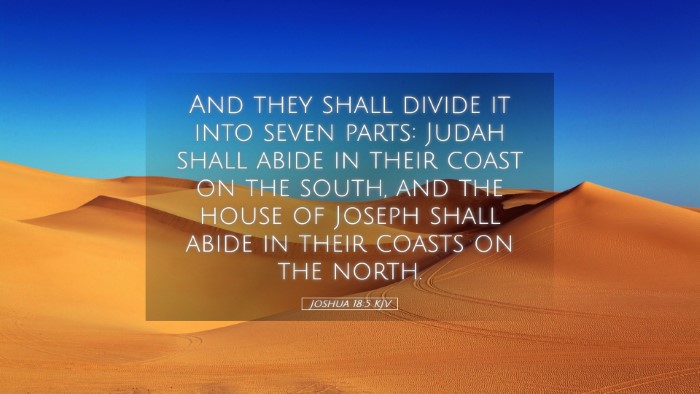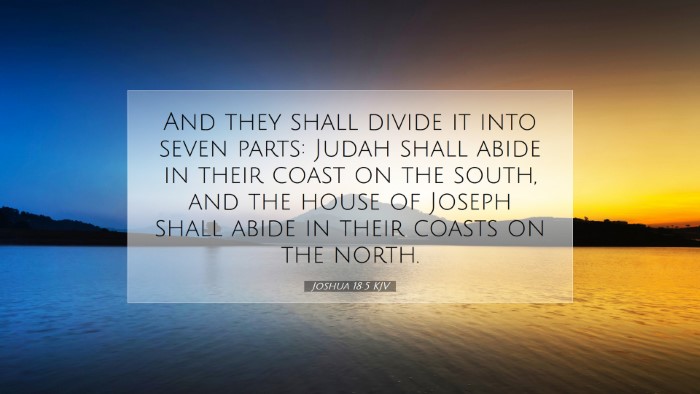Commentary on Joshua 18:5
Bible Verse: "And they shall divide it into seven portions: Judah shall abide in their coast on the south, and the house of Joseph shall abide in their coast on the north."
Introduction
This verse marks a pivotal moment in the conquest and settlement of the Promised Land as it highlights the division of the land among the tribes of Israel. The context of Joshua 18 reveals a strategic and divinely sanctioned process of allocation, which can be explored in greater depth through the insights of renowned biblical commentators.
Commentary Insights
1. The Role of Divine Sovereignty
Matthew Henry emphasizes that the division of the land was to be conducted under the guidance of divine instruction. This act not only underscores God’s sovereignty over Israel’s inheritance but also illustrates His commitment to fulfill promises made to the fathers of the nation. Henry notes that the specifics of the land division accentuate God's meticulousness in administering His blessings, reminding the Israelites that the land ultimately belonged to Him.
2. The Importance of Unity Among the Tribes
Albert Barnes points out that the division of the land into portions aims to foster unity among the tribes. By assigning designated portions to each tribe, the Israelites are encouraged to work together towards common goals while also maintaining their identities. Barnes elaborates on the significance of each tribe having a stake in the land, which binds them closer as a nation under God’s authority.
3. A Lesson in Commitment and Responsibility
Adam Clarke takes a pedagogical approach in his commentary, equating the land division process with a lesson in commitment and responsibility for the Israelites. Clarke indicates that the emphasis on the seven portions serves as a reminder that while God has blessed them with the land, each tribe bears the responsibility of possessing and cultivating it. This duality of receiving and stewarding God’s gifts is critical in understanding their covenant relationship with Him.
4. Geographic and Cultural Significance
Each tribe's allotment is not only a physical division but also reflects cultural and economic considerations. The territories of Judah in the south and Joseph in the north come with unique resources and challenges, which further illustrates God's provision for their diverse needs. This geographical arrangement speaks volumes about the nature of God’s planning for His people, as commentary from Henry and Barnes elucidates socio-economic factors at play in their settlement.
5. Symbolism of Numbers in Scripture
Beyond the literal interpretation of the land's division, the number seven symbolizes completeness and divine perfection in scripture. The deliberate use of 'seven portions' can be linked to God’s perfect governance over creation, indicating that the distribution is not random but rather part of a divine order. This aligns with Clarke’s observations on the spiritual implications behind biblical numerology, which enriches the understanding of this verse.
Application for Contemporary Believers
As modern believers engage with the relevance of Joshua 18:5, there are several key applications that arise:
- Understanding God's Sovereignty: Just as God directed the allotment of land, He sovereignly directs the affairs of our lives today.
- Fostering Unity: In a diverse body of believers, it is important to recognize and celebrate our individual gifts and contributions while achieving a unified purpose in Christ.
- Covenantal Responsibility: Believers are called to be stewards of the blessings and resources God has given them, using them for His glory and the common good.
- Trusting God's Provision: Just as Israel trusted in God’s provision for their physical needs, believers can trust God’s provision in their spiritual and material lives.
Conclusion
The division of the land in Joshua 18:5 is much more than a simple allocation of territory; it signifies God's meticulous plan for His people, fostering unity, highlighting responsibility, and illustrating His sovereign right over the land. Drawing from the insights of Matthew Henry, Albert Barnes, and Adam Clarke, modern readers can glean profound truths and apply these principles to their own faith journey, ensuring that they stay aligned with God's divine purposes.


